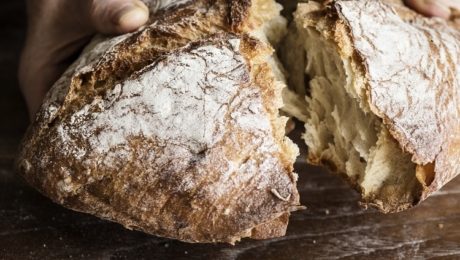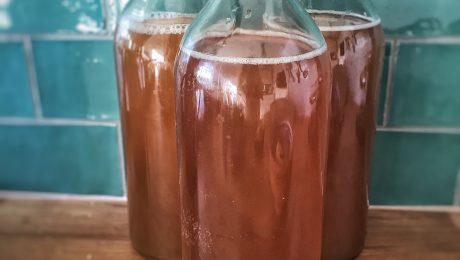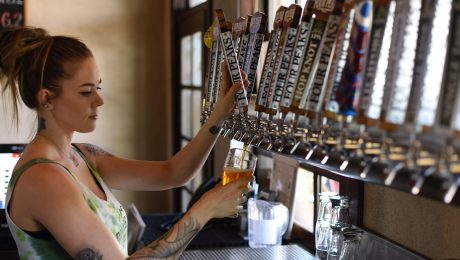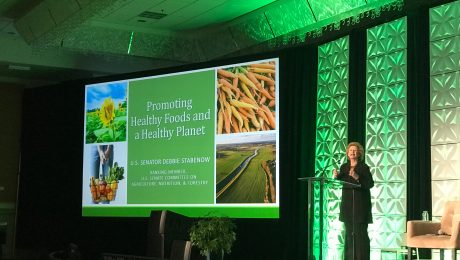Food and Beverage Laws Passed in 2020
Every year, the nation’s 50 state legislatures pass dozens of new laws that have an impact on fermenters. For example, some states amended alcohol laws to allow drink sampling for craft wineries, while others repealed outdated cottage food laws to help small producers operate and more loosened take-out restrictions to help small restaurants survive the pandemic.
Indicative of this year’s focus on the pandemic, laws were introduced but never debated as lawmakers focused on more pressing issues surrounding the coronavirus. The most common new laws passed in 2020 revolved around helping businesses survive — states called special sessions to aid restaurants, stop price gouging of high-demand products and provide emergency grants to small businesses.
Read on for key food, beverage and food service laws passed this year, most taking effect in 2021.
California
AB82 — Prohibits an establishment with an alcohol license from employing an alcohol server without a valid alcohol server certification.
AB3139 — Establishments with alcoholic beverages licenses who had premises destroyed by fire or “any act of God or other force beyond the control of the licensee” can still carry on business at a location within 1,000 feet of the destroyed premise for up to 180 days.
Delaware
HB 237 — Eliminates old requirements that movie theaters selling alcohol must have video cameras in each theater, and that an employee must pass through each theater during a movie showing.
HB275 — Permits beer gardens to allow leashed dogs on licensed outdoor patios.
HB349 — Permits any restaurant, brewpub, tavern or taproom with a valid on-premise license to sell alcoholic beverages for take-out or drive through food service, so long as the cost for the alcohol did not exceed 40% of the establishment’s total sales transactions.
Hawaii
SR84 — Creates a Restaurant Reopening Task Force to help restaurants in Hawaii safely reopen that were closed during the COVID-19 pandemic.
SR94 — Urges restaurants to adopt recommended best practices and safety guidelines developed by the United States Food and Drug Administration and National Restaurant Association in response to the COVID-19 pandemic.
Idaho
HB343 — Amends existing law to require licensing to store and handle wine as a wine warehouse.
HB575 — Allows sampling of alcohol products at liquor stores, which was formerly forbidden under law.
SB1223 — Eliminates obsolete restrictions on food products, to match federal standards. It repeals requiring extra labels on some imported food products, and repeals using enriched flour in bread baking.
Illinois
HB2682 — Amends Liquor Control Act of 1934. Allows a cocktail or mixed drink placed in a sealed container at the retail location to be sold for off-premises consumption if specified requirements are met. Prohibits third-party delivery services from delivering cocktails or mixed drinks.
HB4623 — Amends Food Handling Regulation Enforcement Act, regulating that public health departments provide a certificate for cottage food operations, which must be displayed at all events where the licensee’s food is being sold.
Iowa
HB2238 — Amends code regarding food stands operated by a minor. Bans a municipality from enforcing a license permit or fee for a minor under the age of 18 to sell or distribute food at a food stand.
Kentucky
HB420 — Implements Food Safety Modernization Act, authorizing a department representative to enter a covered farm or farm eligible for inspection.
SB99 — Amends alcohol laws for state’s distillers, brewers and small wineries. Eliminates the sunset on local precinct elections to grant distilleries, and allows distillers to sell other distiller’s products.
Louisiana
HR17 — Allows third-party delivery services to deliver alcohol.
HB136 — Makes adulterating a food product by intentional contamination a crime.
SB455 — Increases the size of containers of high-alcoholic beverages.
SB508 — Gives restaurants protection from lawsuits involving COVID-19. The public will be unable to sue restaurants for COVID-19-related deaths or injuries, as long as the restaurant complies with state, federal and local regulations about the virus.
Maine
LD1167 — Encourages state institutions to serve Maine food and Maine food products, increasing the visibility of the state’s local food producers.
LD1884 — Amends current laws regarding businesses that hold dual liquor licenses, which authorized retailers to sell wine for consumption both on- and off-premise. Retailers with the dual license can now sell with just one employee at least 21 years of age present, and adds that wine can be sold for take-out if food is part of the transaction.
Maryland
HB1017 — Allows cottage food businesses to put their phone number and business ID on their food label, rather than their address as currently required by the Maryland Department of Health.
SB118 — Expands definition of “alcohol production” and “agricultural alcohol production.” The new definitions aim to give Maryland farmers and producers the ability to sell beer, wine and spirits to increase agritourism.
Massachusetts
SB2812 — Expands alcohol take-out and delivery options during COVID-19 pandemic. Allows restaurants to sell mixed drinks in sealed containers alongside other take-out and delivery food orders.
Michigan
HB5343 — Revises regulations on brewpubs and microbreweries, increasing the quantity of beer a microbrewer is permitted to deliver to a retailer during a year from 1,000 barrels to 2,000 barrels.
HB5345 — Amends the Michigan Liquor Control Code to delete the Michigan Liquor Control Commission (MLCC) $6.30 tax levied on each barrel of beer manufactured and sold in Michigan.
HB5354 — Amends the Michigan Liquor Control Code to delete the requirement that a brewpub cannot sell beer in Michigan unless it provides for each brand or type of beer sold a label that truthfully describes the content of each container.
SB711 — Establishes new limited production brewer license for microbreweries at cost of $1,000 for license.
HB5356 — Amends the Michigan Liquor Control Code to ban the required $13.50 cent-per-liter tax on all wine containing 16% or less of alcohol by volume sold in Michigan.
Minnesota
HB5 — Authorizes emergency, small-business grants and loan funding for businesses affected by COVID-19.
HB4599 — Extends period of mediation for Minnesota farmers suffering economic difficulties to keep their farm.
Mississippi
HB326 — Amends outdated code to increase the maximum annual gross sales for a cottage food operation (from $20,000 to $35,000) before the producer would need to pay food establishment permit fees. Authorizes a cottage food operation to advertise products over the internet.
New Jersey
AB2371 — Requires large generators of food waste (like restaurants and supermarkets) to recycle food garbage rather than send it to incinerators or landfills.
AB3865 — Limits return of food from retail food stores during a public emergency.
SB864 — Prohibits sale of single-use plastic carryout bags, single-use paper carryout bags and polystyrene foam food service products, and limits single-use plastic straws.
SB1591 — Allows alcoholic beverages to be consumed from open containers in the Atlantic City Tourism District.
SB2437 — Limits service fees charged to restaurants by third-party food takeout and delivery applications during COVID-19 pandemic.
New Mexico
SB3 — Enacts the Small Business Recovery Act of 2020, which provides loans for small businesses suffering during the coronavirus pandemic.
New York
SB8225 — Authorizes issuing a retail license for on-premise consumption of food and beverage within 200 feet of a church, synagogue or other place of worship.
AB8956 — Allows a licensed brewery or farm brewery to provide no more than four beer samples not exceeding four fluid ounces each.
SB1472 — Requires hospitals to offer plant-based food options to patients upon request.
SB7013 — Authorizes the manufacture and sale of ice cream or other frozen desserts made with liquor.
North Carolina
SB290 — The Alcoholic Beverage Control Regulatory Reform Bills, it allows distilleries the same serving privileges as wineries and craft breweries and reduces regulation on out-of-state sales.
Ohio
HB160 — Aid for the restaurant industry to recover from COVID-19 pandemic, the bill doubles the maximum number of Designated Outdoor Refreshment Areas (DORAs) that can be created in a municipality or township. Also allows Ohio’s small wineries to sell prepackaged food without regulation from the Ohio Department of Agriculture, creates bottle limits for micro-distilleries and permits license holders to sell alcoholic ice cream.
South Carolina
HB4963 — Amends state alcohol code, allows licensed retailers to give wine samples in excess of 16% alcohol, cordials or distilled spirits, as long as they don’t exceed a total of three liters a year.
SB993 — Amends state alcohol code to allow a permitted winery to be eligible for a special permit to sell wine at off-premise events. Also increases the amount of beer a brewery can sell to an individual per day for off-premise consumption.
South Dakota
HB1073 — Authorize special event alcohol licenses for full-service restaurant licensees.
HB1081 — Allows colleges to teach brewing beer and wine classes on South Dakota campuses to students age 21 or older. Brewing must be held off campus as the education institution is not deemed a licensed manufacturer. Any distilled spirits, malt beverage, or wine produced under this section may only be consumed for classroom instruction or research and may not be donated or sold.
Tennessee
SB2423 — Allows alcohol sales at the Memphis Zoo.
SB1123 — Encourages farmers who produce raw milk to complete a safe milk-handling course.
Utah
HB134 — Legalizes the sale of raw butter and raw cream in Utah;
HB232 — An agri-tourism bill that allows farms and ranches to host events that include food that would not need to be prepared in a commercial kitchen. Farmers must apply for a food establishment permit to use their private home kitchen.
HB399 — Changes to the Alcohol Beverage Control Act, prohibits advertising that promotes the intoxicating effects of alcohol or emphasizes the high alcohol content of an alcoholic product.
HB5010 — The COVID-19 Cultural Assistance Grant Program, which appropriates $62 million for struggling arts, cultural and recreational organizations and businesses across the state.
HB6006 — In response to the coronavirus pandemic, the bill amends the Alcohol Beverage Control Act, delaying the expiration date of the retail licenses set to expire in 2020 for places selling alcohol. Also permits alcoholic beverage licensees at international airports to change locations if needed.
Vermont
SB351 — A coronavirus relief bill which authorizes $36 million for agriculture and forestry sectors.
Washington
HB2217 — An update to Cottage Food Law eliminates the requirement that a home address must be put on a food label.
HB2412 — Increases amount of additional retail licenses for a domestic brewery or microbrewery from two to four, and directs health department to adopt rules allowing brewery owners to allow dogs on brewery premise
SB5006 — Allows sale of wine by microbrewery license holders.
SB5323 — A bill eliminating single-use, plastic carry-out bags
SB5549 — Modernizing resident distillery marketing and sales restrictions. Allows distilleries to sell products off-premise, similar to breweries and wineries.
SB6091 — Continues work on the Washington Food Policy Forum, including support for small farms and increasing the availability of food grown in the state.
West Virginia
HB4388 — Removes outdated restrictions on alcohol advertising, limiting the Alcohol Beverage Control Commissioner’s authority to restrict advertising in certain advertising mediums, such as at sporting events and highway billboards.
HB4524 — Making the entire state “wet,” permitting the off-premises sale of alcoholic liquors in every county and municipality in the state.
HB4560 — Permits licensed wine specialty shops to sell wine with a gift basket by telephonic, electronic, mobile or web-based wine ordering. Establishes requirements for lawful delivery.
HB 4697 — Removes restriction that a mini-distillery use raw agricultural products originating on the same premises
HB4882 — Allows unlicensed wineries not currently licensed or located in West Virginia to provide limited sampling and temporary, limited sales for off-premise consumption at fairs, festivals and one-day nonprofit events “in hopes that such wineries would eventually obtain a permanent winery or farm winery license in West Virginia.”
Wisconsin
HB1038 — Bans customers from returning food items during a health pandemic or emergency, dissuading people from stocking up on too many supplies.
SB83 — Increases sales volume of alcohol by retail stores from four liters per transaction to any quantity.
SB170 — Allows minors to operate temporary food stands without a permit or license.
Wyoming
HB82 — Authorizes a microbrewery to operate at more than one location. The local licensing authority may require the payment of an additional permit fee not to exceed $100.00.
HB84 — Authorizes the sale of certain homemade food items that do not require time or temperature control. These include but are not limited to:
but is not limited to, jams, uncut fruits and vegetables, pickled vegetables, hard candies, fudge, nut mixes, granola, dry soup mixes excluding meat based soup mixes, coffee beans, popcorn and baked goods that do not include dairy or meat frosting or filling or other potentially hazardous frosting or filling;
“non-potentially hazardous” (no dairy, quiches, pizzas, frozen doughs, foods that require refrigeration and cooked meat, cooked vegetables and cooked beans). Allows someone other than the producer to sell the food, as long as food is not sold in a retail location or grocery store where similar food items are displayed or sold. Food must be labeled with “food was made in a home kitchen, is not regulated or inspected and may contain allergens.”
HB158 — Allows microbreweries to make malt beverages at multiple locations rather than one as deemed in current law.
Restaurants in Crisis
A new restaurant survey shows 1 in 6 restaurants have closed during the pandemic. And 40% of restaurants say that ”it is unlikely their restaurant will still be in business six months from now if there are no additional relief packages from the federal government,” according to the survey by the National Restaurant Association. The association called the results “startling” and asked Congress for more help.
“For an industry built on service and hospitality, the last six months have challenged the core understanding of our business,” said Tom Bené, president and CEO of the NRA, in a statement. “Across the board, from independent owners to multi-unit franchise operators, restaurants are losing money every month, and they continue to struggle to serve their communities and support their employees.”
The NRA also found consumer spending in restaurants is down an average of 34%, the good service industry lost $165 billion in revenue from March to July and 60% of restaurant owners say their restaurant’s operational costs are higher prior to the COVID-19 outbreak.
Read more (Nation’s Restaurant News)
- Published in Business
Stopping “Sourfaux” in the UK
Artisan bread bakers in the UK are banding together for Sourdough September, pushing for new government legislation to stop the rise of “sourfaux” bread. Laws in the UK allow retailers to sell unwrapped bread loaves without displaying an ingredient list.
Writes the Real Bread Campaign organizer Chris Young: “In the hands of skilled Real Bread bakers, this longer, slower fermentation, allows lactic acid bacteria in the starter to cause changes in the dough that result in bread with a glossy crust and crumb, and a greater complexity of flavour and aroma.”
The UK government promised in 2018 to protect consumers from buying products erroneously label led as “sourdough.” But no action has been made. More than 50 UK bread bakeries have launched their own labeling promise, signing The Sourdough Loaf Mark scheme last month, urging all bread makers to display a full ingredient list.
Read more (Food Navigator)
- Published in Food & Flavor
Alcohol Policy Expert: Lawmakers Must Stop Antiquated Tax Laws on Kombucha Producers
An alcohol policy expert calls for an end to antiquated alcohol excise tax laws, which are unfairly penalizing kombucha producers across the country. Though kombucha only has trace amounts of alcohol (generally below the 0.5% alcoholic beverage threshold), it is “nearly impossible for kombucha producers to control the entire supply chain,” writes Jarrett Dieterle, Director of Commercial Freedom for R Street Institute and the author of forthcoming book “Drink For Your Country.” If not properly refrigerated once it’s left the manufacturer for distribution, kombucha will continue to ferment and raise the alcohol level. Dieterle said it’s unfair to make kombucha makers pay fines of more than $10,000 when they can’t control how the drink is stored once it enters the supply chain. Protecting kombucha, he says, should be a priority for federal lawmakers.
Read more (Washington Examiner)
- Published in Business
“Best Yogurt in America” Finally Sold in California, After Being Forced Out of the State
The yogurt Los Angeles Times calls “the best yogurt in America” was forced out of California in 2011. White Moustache, which sells Greek and Persian yogurts with seasonal fruit common in Iranian cuisine added, moved to Brooklyn in 2012 after California Department of Food & Agriculture shut them down. According to California state law, making a milk-based product in a facility separate from the facility where the milk was pasteurized is illegal. Though White Moustache founder Homa Dashtaki produces her famous yogurt in New York, she now sells it in California — Manhattan’s brand of Eataly opened a Los Angeles store, and Dashtaki’s family members oversee production for the West Coast store.
Read more (The Los Angeles Times)
- Published in Business
Reform on Brewery Tax Receives Big Support in House & Senate
Brewers may finally get a break on a costly tax levied against them since 1791. Bipartisan lawmakers in both the U.S. House and Senate are backing legislation that would permanently reform taxes on brewers, winemakers, distillers and alcohol importers.
The bill – called the Craft Beverage Modernization and Tax Reform Act (CBMTRA) – reduces the federal excise tax on alcoholic beverages. It lowers tax rates for beer, wine and other fermented spirits, like cider. Small brewers save on average $80 million a year without the extra tax.
“Taxes are the single most expensive ingredient in beer, costing more than the labor and raw materials combined,” writes the Beer Institute, a trade organization. “If all the taxes levied on the production, distribution and retailing of beer are added up, they amount to more than 40 percent of the retail price.”
Alcohol excise taxes were the first tax on a domestic product by the U.S. government, and one of the government’s first revenue sources. First collected in 1791, the taxes led to the infamous Whiskey Rebellion tax protest. The purpose of the tax was to help war debt from the Revolutionary War.
Today, though, the government still taxes goods like alcohol and tobacco as part of the “sin tax” logic. Such goods are considered harmful, as alcohol and tobacco consumption is linked to heavy healthcare costs, some paid by taxpayers. Excessive alcohol consumption causes 88,000 deaths a year, an estimated economic impact of $249 billion.
In 2017, the first version of the CBMTRA was passed, under a two-year provision that will expire at the end of 2019. That legislation amended tax law, including:
- For smaller domestic brewers producing fewer than 2 million barrels a year: Reduce federal excise tax from $7 per barrel to $3.50 per barrel for the first 60,000 barrels.
- For all other brewers and beer imports: Reduce federal excise tax from $18 a barrel to $16 a barrel on the first 6 million barrels
- For large brewers with a barrelage over 6 million: Federal excise tax kept at current $18 a barrel.
Brewers, lobbyists and trade associations are pushing for the tax reduction to remain permanent. They point to the huge economic impact the alcohol industry has on the U.S. economy. The U.S. beer industry alone created more than 2.19 million jobs that paid more than $101 billion in wages and benefits in 2018. And, with the increasing popularity of craft brewing, those numbers are rising.
“The craft brewing industry can be found in nearly every Congressional District in the U.S. and contributes more than 500,000 jobs, including an additional 15,000 directly added at small breweries just last year, showcasing the positive momentum supported by temporary provisions,” said Bob Pease, president and CEO of the Brewers Association. “The industry is responsible for contributing more than $76.2 billion to the U.S. economy and is a success story for American industry.”
The wine industry, meanwhile, supported 1.73 million jobs that paid more than $75.7 billion in wages in 2017. Though the cider industry doesn’t have specific numbers on jobs, the cider market grew faster in 2018 than the beer, wine or spirits industry.
“Many of our members are small producers with direct investment in agriculture here in the United States,” said Paul Vander Heide, president of the United States Association of Cider Makers. “This will provide them additional security for their families and capital to invest in growth opportunities for their business.”
After the CBMTRA enactment in 2017, 99 percent of small brewers saw a 50 percent reduction of their federal excise tax. A survey by the Brewers Association found those savings sparked a variety of economic gains for the craft brewing industry:
- 73% of breweries are purchasing new equipment, upgrading their tasting rooms and breweries, moving to new buildings, etc.
- 53% of breweries are hiring new employees
- 39% are increasing their employee benefits by raising pay, offering insurance and expanding vacation time
- 21% are increasing their charitable contributions
- 58% are doing two or more of the above-mentioned actions
Added Bobby Koch, president and CEO of Wine Institute: “The savings will allow wineries across America – most of which are small, family-owned businesses – to hire new employees, upgrade equipment, and invest in the future growth of their wineries.”
Information and updates on the bill can be found on the Congress website. The bill was introduced by Rep. Ron Kind, D-Wisconsin, Mike Kelly, R-Pennsylvania, Sen. Ron Wyden, D-Oregon and Roy Blunt, R-Missouri.
- Published in Business
GT Dave Endorses KBI’s New Standards Defining Kombucha
On the cusp of an announcement from KBI on standards defining kombucha, GT Dave — founder of GT’s Kombucha — gave KBI a $1 million endowment to protect authentic kombucha. Speaking to attendees at the annual KombuchaKon, GT said: “Kombucha is now being mass produced by some newer brands that have entered the market and they are positioning them for a mainstream palate. These barely fermented products are missing the heart and soul of what the industry of kombucha should be, and it’s looking more like a new age soft drink.” GT believes kombucha brands need to be upfront about what techniques they’re using to make their kombucha, like pasteurization, hyper-filtration, artificial carbonation, concentrate use and/or spinning cone technology.
Read more (Food Navigator)
- Published in Business
Consumers: Let Plant-Based Foods Continue to Use Dairy Labels
Consumers are in favor of allowing plant-based food to use traditional dairy terms on their labels — but dairy farmers are strongly opposed to it. Last year, the U.S. FDA issued a public comment period to examine if plant-based foods and beverages should use the traditional dairy names: milk, cheese and yogurt. The results are out. Of those comments, 76 percent were in favor of using dairy terms on plant-based products, 13.5 percent were against and the remaining 10.5 percent were inconclusive. Of the commenters that identified themselves as dairy farmers, nearly all were opposed. Dairy farmers are concerned consumers will believe plant-based foods are nutritionally similar to cow’s milk (94 percent) and that consumers are being misled with a dairy term on a plant-based item (91 percent).
Read more (Linkage Research)
- Published in Business
Oregon Legislators Try to Axe Kombucha Tax
Oregon lawmakers are attempting to end the alcoholic beverage tax placed on kombucha. One of the fastest growing fermented produce and beverages, many kombucha brands are based in Oregon, and state leadership on both sides of the political fence realize how critical kombucha is to Oregon’s economy. “I’ve met with kombucha manufacturers in Oregon who have told me how this outdated tax is holding back their industry,” said Rep. Greg Walden (R-Hood River). “This bill will help these small businesses keep more of their hard earned money to reinvest in their businesses and create jobs in our communities.” The bill – called Keeping our Manufacturers from Being Unfairly Taxed while Championing Health Act (or KOMBUCHA) – would increase alcohol-by-volume limit for kombucha from 0.5 percent to 1.25 percent. Currently, fermented beverages containing at least 0.5 percent of alcohol by volume are taxed through federal alcohol excise taxes.
Read more (Oregon Public Broadcasting) (Photo by: Humm Kombucha)
- Published in Business
U.S. Sen. Debbie Stabenow Calls for Food Advocates to Help Change America’s Food System
The voices of organic and natural advocates are critical to public policy, and change in the food system starts with farmers, food producers and even parents feeding their family in a healthy, sustainable way.
“Your voices matter more than ever. You are the reason we’ve seen so many changes in our food system over the past 85 years,” said Sen. Debbie Stabenow (D-Michigan), keynote speaker at Natural Products Expo West in Anaheim, Calif. Stabenow is the Ranking Member of the U.S. Senate Committee on Agriculture, Nutrition and Forestry and the co-author of the 2018 Farm Bill. “We’ve made progress, but there’s a lot more to do. That’s where all of you come in. “
Legislation is catching up with consumer desire. For the first time in U.S. history, organic food is permanently protected and protected under the current farm bill. The farm bill is the government’s primary food and agriculture policy tool, and it’s renewed every five years.
Organic food is a movement that’s been rising for decades, Stabenow said. Though it may feel like the organic industry just took off, Stabenow said “It’s moving more quickly now because of the incredible demand from the public. … Organics is the fastest growing part of our farm economy, so we made it a priority in the farm bill.”
“Now more than ever before people are paying attention to what they eat. They want to know where their food comes from and how it’s grown. … People are also becoming more interested in the hands that plant the seed, the soil in which they grow and the impact on our family’s health.”
The farm bill is the best example of how food policy has changed. The first farm bill was established in 1933, during the Great Depression. A national organics program wasn’t put in the bill until the 1990s.
The organic industry has grown from $3.6 billion in 1997 to over $50 billion today.
Stabenow is proud of the policies added to the 2018 Farm Bill, passed in a difficult political climate. Republicans control all parts of the federal government. And President Donald Trump has pushed for such tight regulations on the organics program that he’s been accused of “waging war” on the organics industry. But bipartisan support helped pass what Stabenow called “the most progressive farm bill yet.”
The major bill highlight for the organic industry was the establishment of permanent, mandatory funding for organics. Stabenow compared it to organics previously sitting at the “kid’s table” with temporary funding for organics that was depleted and reevaluated every five years.
“I’m proud to say we’re now at the adult’s table,” Stabenow said. “What does that mean? It means organic research and provisions will live on past the current farm bill. It means farmers markets and food hubs and community food provisions will continue to grow the local food movement.”
With organics finally protected, Stabenow said, it’s time to look at new ideas. What can propel the next farm bill with healthy and sustainable policies?
“As creators, as innovators as advocates you really are the engine driving our country to a more sustainable future, and I can’t think of anything more important than being able to do that,” she said.
- Published in Business










